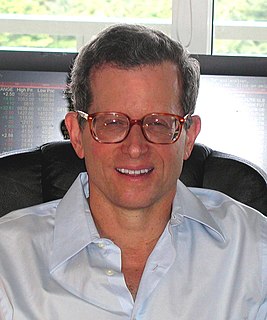A Quote by Anita Roddick
The predominant idea behind globalization, in its most virulent form, is an unpleasant kind of social Darwinism - that the world is for winners not losers, that only the successful count, that money is considerably more important than votes.
Related Quotes
This is a war universe. War all the time. That is its nature. There may be other universes based on all sorts of other principles, but ours seems to be based on war and games. All games are basically hostile. Winners and losers. We see them all around us: the winners and the losers. The losers can oftentimes become winners, and the winners can very easily become losers.
The silver lining of Brexit and Trump is that it has undermined the perception that globalization is an unstoppable force, whether or not we think it is a good thing or a bad thing. There have always been losers and as well as winners in this process, and cultural minorities have been among the most vulnerable losers. Now that sizable numbers of people in the most advanced economies have made their grievances felt in a fashion that is hard to ignore.
The guys that go into the Hall of Fame are the winners, and the losers are the ones who put them in there, and I would like to see some of the great losers through the years be in the Hall of Fame. I know that that's probably impossible, but you've got to give those losers credit, they made the winners.
The major media companies are playing a defensive game, and I'm not sure I blame them. If you look at the digital revolution, you look at who the winners and the losers are, there are some very very big losers - music, the newspaper industry. And there are some really big winners, social media, Facebook.


































